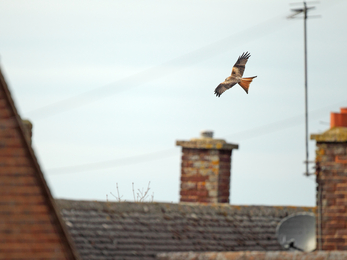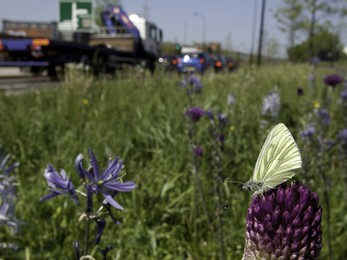Here in Dorset, where wildlife and wild places are an essential part of our natural heritage and identity, we acknowledge this step forward – but we remain deeply concerned. The amendments simply do not go far enough to address the significant risks this legislation still poses to nature.
Dorset Wildlife Trust, along with The Wildlife Trusts nationally, has been raising the alarm over this Bill since it was first introduced. The government’s concessions, which clarify that changes must not result in a “regression” of environmental law, are a response to widespread public and expert concern. But words like “non-regression” are only meaningful if backed up with clear legal protections and enforcement, and that is still missing.
The Office for Environmental Protection (OEP), the independent watchdog set up to hold government to account, has issued a stark warning: the Bill remains regressive in its overall effect. Its assessment highlights the serious implications of Part 3 of the Bill, which still requires urgent attention. In particular Part 3 grants ministers sweeping powers to alter or disapply environmental requirements to fast-track infrastructure projects. This represents a dangerous erosion of long-standing environmental safeguards, allowing potentially irreversible harm to habitats and species.
Worse still, the Bill introduces a damaging shift in principle, enabling developers to effectively pay to destroy nature. While the recent amendments improve the likelihood that Environmental Delivery Plans (EDPs) will deliver what they promise, they ignore the root problem: compensation is only needed because the Bill makes it easier to damage or destroy protected habitats in the first place.
Crucially, without the mitigation hierarchy clearly embedded in the Bill — the principle that harm must be avoided, then minimised, and only compensated as a last resort, developers are permitted to leapfrog straight to compensation. This sends a deeply troubling message: it’s acceptable to destroy habitats and species, so long as you pay for it.
That is not acceptable for Dorset – or anywhere else. It flies in the face of public sentiment and undermines decades of progress in environmental protection. We urge everyone to say no to #CashToTrash and to call on the Government to scrap Part 3 of the Planning and Infrastructure Bill.
Dorset’s landscapes, from our internationally important heathlands and chalk grasslands to rare chalk streams and marine ecosystems, are irreplaceable. The streamlined powers proposed in the Bill make it easier to override protections that have taken decades to put in place. The Bill needs urgent repair to prevent long-term damage to Dorset’s biodiversity.
There is a better way. Dorset’s experience shows that development and nature recovery can go hand in hand, if the right frameworks are in place. We need a planning system that encourages genuinely sustainable growth, guided by strong environmental standards and rooted in the needs of local communities. That means keeping legal protections in place, not granting powers that allow them to be removed at will.
The amendments are a sign that public pressure can bring change, and we welcome that. But we must keep pressing. Without fundamental changes, especially to Part 3, this Bill still presents one of the greatest threats to environmental protection in recent memory.
Now is the time to stand firm for Dorset’s wildlife. The government must act to put nature at the heart of the planning system — and that starts with fixing or scrapping Part 3.



